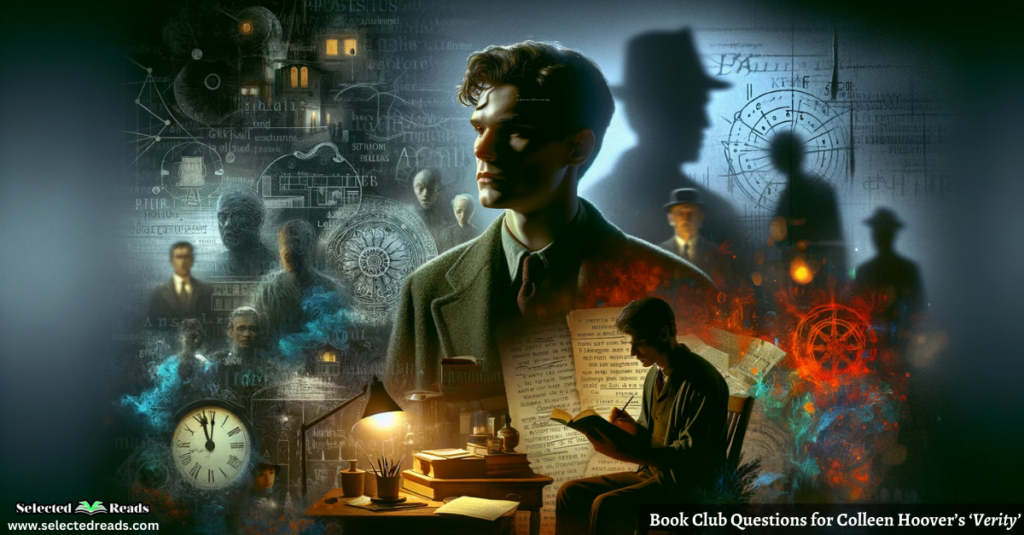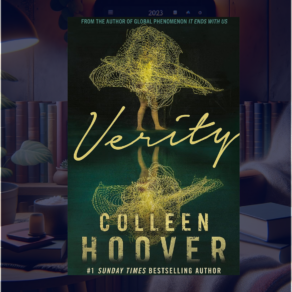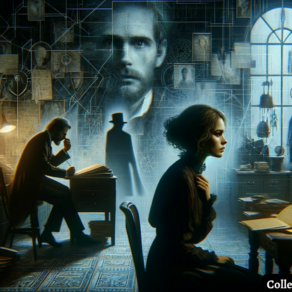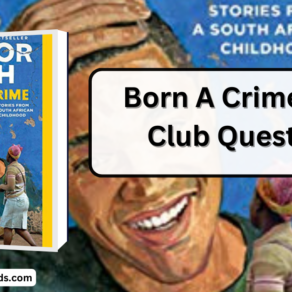In our ongoing exploration of Colleen Hoover’s gripping thriller, “Verity,” we’ve delved deep into its layers, uncovering the nuances of its narrative and the complexities of its characters. After sharing an in-depth summary and analysis in a previous post, and highlighting some of the novel’s most impactful quotes in another, we’re now turning our focus to a crucial aspect of any literary journey: discussion.
“Verity” presents us with a story that is as unsettling as it is unputdownable. It follows Lowen Ashleigh, a struggling writer, who finds an unexpected opportunity when she’s hired to complete the remaining books of a successful series after the original author, Verity Crawford, is incapacitated. Lowen’s discovery of a hidden manuscript in Verity’s home office – an autobiography containing chilling truths – sets the stage for a tale of psychological intrigue and moral ambiguity.
The narrative weaves through themes of truth, deception, and ethical dilemmas, making it a perfect candidate for lively book club discussions. Whether it’s the complexity of the characters, the moral quandaries they face, or the book’s shocking conclusion, “Verity” offers ample material for exploration and debate.
In this post, we’ve compiled a comprehensive list of discussion questions designed to spark deep and engaging conversations about this mesmerizing novel. These questions will not only encourage you to analyze the characters’ motivations and the novel’s thematic elements but also to share your personal perspectives on the story’s many twists and turns.
Colleen Hoover Verity Book Club Questions
Here are some thought-provoking questions that can guide your book club’s conversation:
- Character Analysis: Lowen’s decision to keep Verity’s manuscript a secret plays a pivotal role in the story. What are your thoughts on her decision? Do you find her actions justifiable?
- Moral Ambiguity: “Verity” dives into the murky waters of morality and ethics. Discuss the moral dilemmas faced by the characters. How do these dilemmas impact your perception of them?
- Themes of Truth and Deception: How does the novel explore the themes of truth and deception? Discuss instances where these themes are most prominently featured and their significance to the story’s development.
- Psychological Elements: The novel has a strong psychological element. How do Hoover’s writing style and narrative techniques contribute to the psychological tension in the story?
- Character Development: How do you perceive the transformation of Lowen’s character from the beginning to the end of the novel? What key moments define her character arc?
- Jeremy Crawford’s Role: Discuss Jeremy Crawford’s character and his role in the novel. How does his relationship with Lowen and Verity affect the story’s progression and its thematic development?
- The Unreliable Narrator: To what extent do you believe Verity is an unreliable narrator in her autobiography? How does this affect your interpretation of the events described?
- The Ending: “Verity” is known for its shocking conclusion. How did you react to the ending? Were you satisfied, or did it leave you with more questions?
- Comparative Literature: How does “Verity” compare to other psychological thrillers or books you have read? Are there any specific elements in this book that you found uniquely compelling or different?
- Author’s Intent: Colleen Hoover has a distinct style and approach to storytelling. What do you think Hoover was trying to convey through “Verity”? Discuss how her writing style and thematic choices contribute to the overall impact of the novel.
- Interpretation of Autobiography: How did your perception of Verity change after reading excerpts from her autobiography? Discuss the reliability of autobiographies as a literary device in this context.
- Impact of Setting: The setting in “Verity” is almost a character in itself. How does the setting influence the mood of the story and the psychological states of the characters?
- Character Motivations: Explore the motivations behind Lowen’s actions throughout the novel. What drives her, and how do her motivations evolve?
- Symbolism and Imagery: Discuss any symbolism or recurring imagery in the book. How do these elements enhance the story and its themes?
- The Role of Love and Romance: Analyze the role that love and romantic relationships play in the novel. How do these relationships impact the decisions and transformations of the characters?
- Ethical Dilemmas: The book presents several ethical dilemmas. Choose one and discuss how you would have reacted in that situation. Do you think there are clear right or wrong choices in these scenarios?
- Reader’s Emotional Journey: How did the book make you feel as you read it? Were there any moments that particularly shocked, disturbed, or moved you?
- Character Relationships: Discuss the dynamics between Lowen and Jeremy, and how they change throughout the novel. What do these dynamics reveal about each character?
- The Role of Secrets: Secrets are a central theme in “Verity.” Discuss how the revelation of secrets drives the plot and affects the characters. Are there any secrets that you think should have remained hidden?
- Authorial Choices: Colleen Hoover makes some bold choices in the narrative structure and plot development of “Verity.” Discuss how these choices impacted your reading experience. Were there any moments that stood out to you as particularly effective or surprising?
Final thoughts
The discussions sparked by these questions are not only about the characters and their choices but also mirror our own understanding of complex human emotions and moral dilemmas.
Each question we’ve shared is designed to provoke thought, elicit diverse viewpoints, and deepen your appreciation of Hoover’s masterful storytelling. Whether you find yourself empathizing with Lowen, unravelling the enigma that is Verity, or dissecting the intricate web of truths and lies, the conversations stemming from these questions promise to be as compelling as the book itself.







